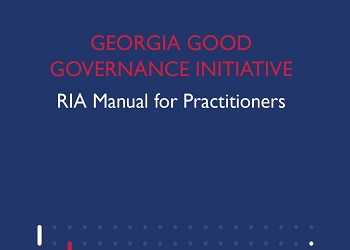Quality policymaking benefits from a process that is predictable, transparent, participatory, and accountable. This type of process helps make decisions that are legitimate, justified, effective, and proportionate.
It is important to note immediately that regulation is only one possible option available for governmental intervention in society and the economy (see Box 1 for a definition of regulation). This view is fully incorporated in article 30 of ordinance No. 35, according to which:
• If, on the basis of a draft RIA report, it has been established that the best option to resolve a problem/issue is legislative regulation, an authorized official of the initiating agency shall make a decision on including the issue in the plan for the preparation of draft laws by the agency;
• If, on the basis of a draft RIA report, it has been established that the best option to resolve a problem/issue is a non-regulatory option, or it is advisable to regulate the problem/issue with a subordinate normative act or an individual legal act, an authorized official of the agency shall assign to an appropriately authorized structural unit the task of preparing a plan for resolving the problem/issue.
This manual identifies how to explore an issue that could require intervention and to assess the likely impacts, reviews, and consultancy for various types of public policy intervention – not only regulation – both in theory and in practice.











